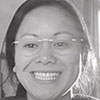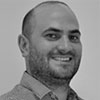Different Perspectives and Strategies for Liquid Chromatography Peak Capacity Optimization and Method Development
1. A practical guide to maximize the sample peak capacity for complex small molecule separations Dr. Arianne Soliven – Product Specialist, Avantor, UK. Method development for complex small molecule samples using reversed-phase (RP) separation conditions is a challenging problem, especially when the sample matrix itself may contain many unknown analytes in a dynamic range of different concentrations. This talk is based on guiding analysts on an established approach published in 2013 aimed at optimizing the practical method decisions: (column length (L), temperature (T), flow rate (F), and final organic strength mobile phase composition (∅final) to maximize the separation’s peak capacity.
2. Software-assisted method development enables the optimization of chromatographic separation and enhancement of peak capacity Dr. Imad Haidar Ahmad - Research Director, Amgen, USA. Software-assisted method development is a powerful tool to achieve optimal performance in chromatographic separations. In the pharmaceutical industry, chromatographic modelling is a fundamental part of the analytical workflow, which focuses on chromatography column selection along with optimizing mobile phase composition and gradient conditions. This integration of chromatography modelling into analytical workflow enables accelerating method development and ensures compliance to regulatory requirements. In this presentation, we show how chromatography modelling can be used to pick the optimum selectivity, shorten cycle time, decrease peak width, and enhance resolution, which is translated into higher peak capacity. We will highlight the use of modelling to increase peak capacity and address challenging separations by showcasing several real-life methods employed in the pharmaceutical industry.
3. Strategies for trace contaminant analysis in complex sample matrices Dr. Andrés Pérez-Parada - Professor at the University of the Republic, Uruguay. Various types of organic pollutants can be present in both food and environmental samples. This presentation aims to showcase the practical applications of LC-FLD in the routine analysis of glyphosate in freshwater and agricultural soils. Additionally, rapid determination of Ochratoxin A in wines will be demonstrated, employing advanced core-shell Avantor LC columns. Furthermore, the presentation will delve into the environmental dissipation of rice pesticides, presenting large-scale multi-residue methods using LC-MS/MS. This overview will give insights into the analytical versatility and efficacy of LC in addressing diverse challenges related to organic pollutant analysis.
For more information, please contact us at webinar@avantorsciences.com
Presented by:
 |
Arianne Soliven is a Product Specialist at Avantor for manufactured LCMS products. She obtained her PhD in Australia with Prof. Andrew Shalliker and has worked with chromatography leaders, the eminent Prof. Georges Guiochon and Prof. Peter Carr. She has worked in the manufacturing sector with Advanced Materials Technology and in the pharmaceutical industry with Novartis. She is currently an honorary adjunct fellow at Western Sydney University, Australia, and an editorial board member for Chromatographia. She is passionate about sustainability and supporting diversity, equity, and women in science. With >15 years of chromatography experience and a proven strong track record of scientific collaborations with >50 peer-reviewed publications with 79 co-authors around the globe. | |
 |
Imad Haidar Ahmad completed his graduate studies in Analytical Chemistry at Florida State University under the guidance of Professor André Striegel. Upon graduation, Imad continued his training as a postdoctoral fellow at the University of Minnesota in the field of separation science and analytical chemistry with Professor Peter W. Carr. He started his professional career at Novartis in the Drug Inhalation department in San Carlos, CA where he led method development efforts at various stages of drug development. Imad then moved to the East Coast after joining Merck in Rahway, NJ. There, he supervised the method Screening & Purification group. Imad is currently a Director of Research at Amgen, focusing on method development, API purification, impurity isolation and chromatography modelling. He will lead the analytical and purification activities. | |
 |
Andrés Pérez-Parada is currently a Professor at the University of the Republic, Uruguay and active member of the National System of Researchers of that country. He obtained his PhD conducting research in pesticide residue analysis with Prof. Amadeo R. Fernandez-Alba (University of Almeria, Spain) and Prof. Horacio Heinzen (University of the Republic, Uruguay). He focuses his research on environmental and food analytical chemistry using cutting-edge chromatography and mass spectrometry. Andrés has contributed to the field with > 45 publications accumulating > 1,000 citations in top international journals. | |
 Email Alerts
Email Alerts